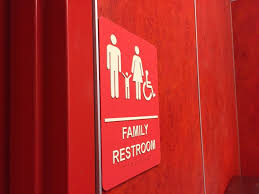Is Boycott a Factor in Slumping Target Sales?
 Lots of factors figure into the continuing decline of shoppers and sales at Twin Cities-based Target Corporation’s stores nationwide. Target share prices dipped nearly six percent on expectations the retailer will record a third straight quarter of declining sales totals over the previous year.
Lots of factors figure into the continuing decline of shoppers and sales at Twin Cities-based Target Corporation’s stores nationwide. Target share prices dipped nearly six percent on expectations the retailer will record a third straight quarter of declining sales totals over the previous year.
The demise of big box retailers, the popularity of online shopping and related trends were cited as explanations in reports on today’s announcement of disappointing holiday season sales and a lowered outlook for the fourth quarter. Even a 30 percent increase in online sales failed to make up for a big loss in customer visits that was highlighted by Fortune.
But it’s also clear that Target’s success online came at the expense of what [Target CEO Brian] Cornell called “disappointing traffic and sales trends in our stores.” Target only gets about 5% of its revenues digitally.
Yet there appears to be another intangible factor at work in the precipitous fall-off in financial results at “Tarzhay.” But you won’t find it in the latest Star Tribune business report on the discount chain’s woes, unless you skip down to the comments section at the end of the story.
Maybe if Target spent less time on bathroom issues? There are many competitive places to shop without supporting a political agenda. I think the Target management team is reaping what they sowed.
It’s not a dynamic tied to economic forecasts or stock prices but based on feedback from former customers who responded to the latest news.
I don’t even really care for Walmart that much but the Target bathroom policy made it very easy for me to switch all of my Target business to Walmart. I know of many people who have done the same. It is really bizarre that a business decides to include social issues in its business model. I would not touch Target stock with a 10 foot pole.
 While the backlash to Target’s controversial transgender bathroom policy is conspicuously missing from the media stories, their readers more than make up for the omission. It’s clear from their expressed opinions that many once loyal Target consumers are still on board with the national boycott announced last spring.
While the backlash to Target’s controversial transgender bathroom policy is conspicuously missing from the media stories, their readers more than make up for the omission. It’s clear from their expressed opinions that many once loyal Target consumers are still on board with the national boycott announced last spring.
Not surprising. They are way too political. I won’t shop there anymore. Just shut up and sell stuff. You are a retail store not a political movement.
A financial services group in Massachusetts, the Cabot Wealth Network, also continues to be particularly critical of Target’s policy and the impact on investors.
I immediately knew that Target’s revenue would drop, because its customer base would become disenfranchised. How did Target’s management team not know this? Was there an executive meeting wherein the CEO and the marketing department discussed the pros and cons of this pending decision? Or did the decision solidify during a Kum ba yah moment between martinis at an executive retreat?
We all know the “pros” of Target’s bathroom policy: people want an ideal world where everybody is safe and feels good about themselves. But lots of us foresaw the “cons”: a large portion of Target’s customer base wouldn’t feel comfortable with the controversial decision.
And that’s exactly what’s happened—customers have reacted by boycotting Target.
The company’s lackluster financial results will undoubtedly further motivate those who still have a bull’s eye on Target for what they view as the politicization of shopping.